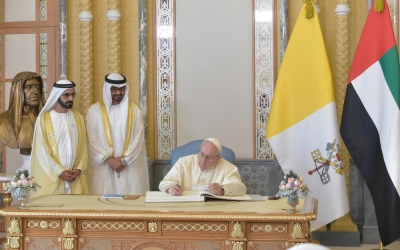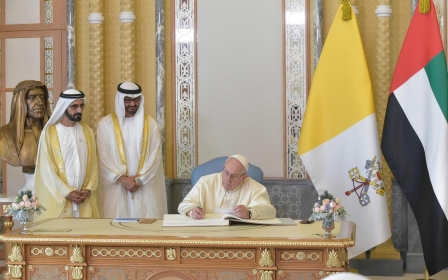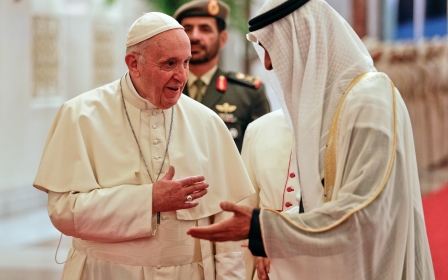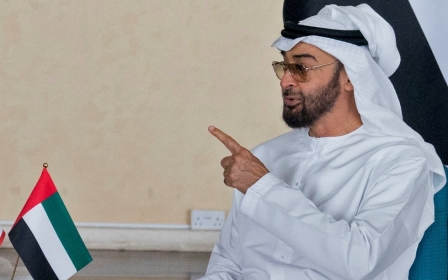'Whitewash': UK accused over journalism prize promoting 'tolerant' UAE
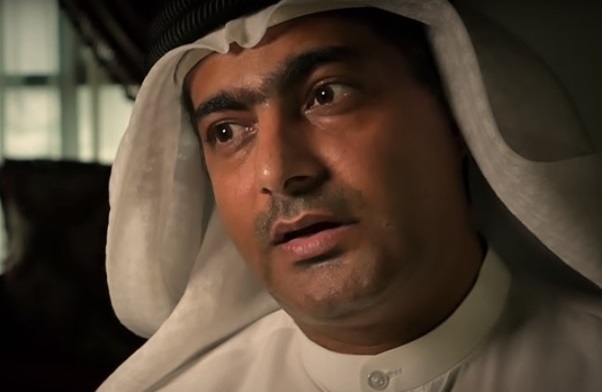
The British government has been accused of whitewashing human rights abuses and the "near-obliteration of free speech" in the United Arab Emirates (UAE) by launching a "young journalist award" in the Gulf state.
The award, launched on Thursday by the British embassy in Abu Dhabi in conjunction with The National newspaper, asks entrants to write an opinion piece on the UAE's "Year of Tolerance" initiative.
Aimed at students aged between 16 and 18, guidelines for entrants urge them to consider "What can the world learn from the UAE’s model for tolerance?" and "How does the Year of Tolerance reflect the already established values of diversity within the UAE?"
"The United Kingdom remains committed to supporting the growth of journalism around the world and particularly amongst aspiring youth. Now known as a leading regional media hub, home to a growing number of outlets, the UAE is well positioned to push forward the passion for journalism within education and youth," the British government said on its website.
But the guidelines also tell entrants that they must abide by media laws in the UAE, which forbid criticism of the Emirati government and ruling families, its monarchical system, political decisions or "defaming public officials".
The Year of Tolerance campaign was reportedly designed to promote the values of the country’s founder, Zayed bin Sultan. Citizens were urged to film themselves reciting a number of pledges to tolerance, forgiveness, peace and harmony.
Hiba Zayadin, a Gulf Rights expert for Human Rights Watch, criticised the British government for its participation in this initiative and said it was "helping whitewash" the UAE government.
"It is not just ironic to host such an initiative in one of the world's most repressive countries, but downright irresponsible," Zayadin told Middle East Eye.
"The UAE is a country where the red lines are constantly shifting, and where journalists, academics and critics have been targeted, harassed, threatened, and jailed simply for expressing their opinions."
Press freedom in the UAE has been a constant source of criticism for the Emirates. Reporters Without Borders (RSF) ranked the UAE at 133rd in its 2019 Press Freedom Index and described the country as the "masters of the online surveillance of journalists".
"The least criticism of the regime by citizen-journalists or bloggers is likely to lead to charges of defamation, insulting the state or posting false information with the aim of damaging the country’s reputation, with the possibility of long jail terms and mistreatment in prison," RSF said in the report.
Earlier this year, the UAE upheld a 10-year jail sentence for Ahmed Mansoor, an Emirati blogger, for "insulting the UAE's leaders online."
Mansoor was charged with "sullying the status and prestige of the UAE and its symbols" and posting false information on social media.
Commenting on press freedom in the Emirate, Zayadin noted that "independent journalism is not allowed to flourish in the UAE".
She added: "By launching such an initiative, the British embassy is not supporting the growth of journalism around the world so much as it is helping to whitewash a repressive regime’s near-obliteration of the space for free speech."
Middle East Eye has asked the British government for comment.
Middle East Eye delivers independent and unrivalled coverage and analysis of the Middle East, North Africa and beyond. To learn more about republishing this content and the associated fees, please fill out this form. More about MEE can be found here.


